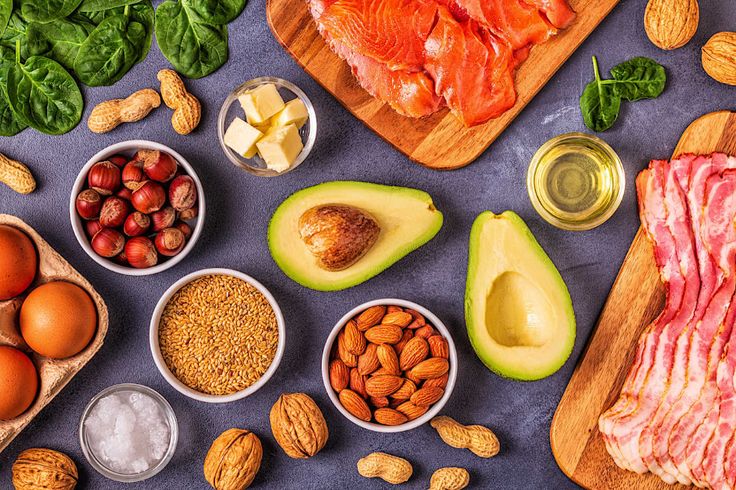When it comes to achieving glowing, healthy skin, we often focus on expensive skincare products or treatments. However, one of the most effective ways to improve the appearance and health of your skin is through what you eat. The foods you consume play a crucial role in maintaining skin elasticity, reducing inflammation, and fighting off harmful free radicals that can lead to premature aging.
In this article, we’ll explore some of the best foods for skin care that you can add to your diet to promote a glowing complexion and healthier skin overall.
Avocados: The Skin Hydration Hero
Avocados are rich in healthy fats, which help keep your skin hydrated and supple. These fats also help maintain your skin’s natural moisture barrier, preventing dryness and irritation. Additionally, avocados are high in vitamins E and C, which are antioxidants that protect your skin from oxidative stress caused by free radicals.
How to incorporate:
Add sliced avocado to your salad or sandwich.
Make a creamy avocado smoothie.
Enjoy it as guacamole with whole-grain crackers.
Berries: Antioxidant Powerhouses
Berries like blueberries, strawberries, raspberries, and blackberries are packed with antioxidants, including vitamin C. Vitamin C plays a crucial role in collagen production, which helps keep your skin firm and youthful. Antioxidants also help combat environmental damage from pollutants and UV rays, preventing premature aging and skin discoloration.
How to incorporate:
Enjoy berries as a snack or add them to your morning smoothie.
Sprinkle them over yogurt or oatmeal.
Use them as a topping for pancakes or waffles.
Nuts and Seeds: Boost Collagen Production
Nuts and seeds, such as almonds, walnuts, chia seeds, and flaxseeds, are excellent sources of omega-3 fatty acids, vitamin E, and zinc. Omega-3s help reduce inflammation in the skin, while zinc supports the skin’s healing process and helps fight acne. Vitamin E is another powerful antioxidant that protects skin cells from damage and improves skin texture.
How to incorporate:
Snack on a handful of mixed nuts and seeds.
Add them to your smoothie bowl or yogurt.
Use nut butter as a spread on whole-grain toast.
Carrots: A Natural Source of Beta-Carotene
Carrots are rich in beta-carotene, a form of vitamin A that helps improve skin texture and tone. Beta-carotene is converted into retinol in the body, which supports cell turnover, reduces fine lines, and promotes a more even skin tone. Eating foods high in beta-carotene can also protect your skin from sun damage and reduce the risk of sunburn.
How to incorporate:
Enjoy raw carrots as a crunchy snack with hummus.
Add grated carrots to salads or smoothies.
Make a carrot soup or roasted carrot dish as a side.
Tomatoes: Sun Protection in a Bite
Tomatoes are rich in lycopene, a powerful antioxidant that helps protect the skin from UV damage and reduces the appearance of fine lines and wrinkles. Lycopene has also been shown to improve skin texture and tone. When tomatoes are cooked, their lycopene content becomes more bioavailable, making them an even more powerful food for skin health.
How to incorporate:
Enjoy a fresh tomato salad with olive oil and herbs.
Make tomato-based sauces for pasta or pizza.
Add tomatoes to soups or sandwiches.
Green Leafy Vegetables: The Vitamin Powerhouses
Green leafy vegetables like spinach, kale, and Swiss chard are loaded with vitamins A, C, and K, which support collagen production, reduce inflammation, and promote skin healing. These vegetables are also rich in iron, which helps oxygenate the skin and gives you a healthy, radiant glow.
How to incorporate:
Add spinach or kale to smoothies for an easy boost of nutrients.
Sauté them with olive oil and garlic as a side dish.
Use greens as the base for a salad or in wraps.
Sweet Potatoes: A Rich Source of Beta-Carotene
Like carrots, sweet potatoes are packed with beta-carotene, which helps protect the skin from UV damage and promotes healthy cell turnover. This makes them an best food tips for improving skin elasticity and reducing the appearance of wrinkles.
How to incorporate:
Roast sweet potato cubes as a side dish.
Mash them with a little butter or olive oil for a comforting treat.
Use them in soups, stews, or casseroles.
Citrus Fruits: Vitamin C for Collagen Production
Citrus fruits like oranges, lemons, grapefruits, and limes are rich in vitamin C, which is essential for collagen production. Collagen is a protein that gives your skin its structure and elasticity. Increasing your vitamin C intake can help reduce wrinkles and sagging skin while brightening your complexion.
How to incorporate:
Enjoy a fresh citrus salad or drink freshly squeezed juice.
Add citrus slices to your water for a refreshing twist.
Use lemon or lime zest to add flavor to your dishes.
Olive Oil: A Healthy Fat for Skin Protection
Olive oil is an excellent source of healthy monounsaturated fats, which help nourish and hydrate the skin. It also contains polyphenols, which have anti-inflammatory and antioxidant properties. These compounds help protect the skin from environmental stressors and improve skin elasticity.
How to incorporate:
Use olive oil as a dressing for salads or roasted vegetables.
Drizzle it over whole-grain bread or pasta.
Add it to your favorite soups and stews for extra richness.
Water: The Ultimate Skin Hydrator
While not technically a food, drinking enough water is one of the most important things you can do for your skin. Proper hydration helps maintain your skin’s elasticity, flush out toxins, and promote a clear complexion. Dehydration can lead to dry, dull, and irritated skin, so make sure you’re drinking enough water throughout the day.
How to incorporate:
Carry a reusable water bottle with you to stay hydrated all day.
Add a slice of lemon, cucumber, or mint for extra flavor.
Drink herbal teas, which also contribute to your daily water intake.
Conclusion
A healthy diet rich in nutrient-dense foods is essential for maintaining youthful, glowing skin. By incorporating these skin-friendly foods into your meals, you’re not only nourishing your body but also giving your skin the support it needs to look its best. Remember that healthy skin is a reflection of overall well-being, so combine a balanced diet with other skin care practices like staying hydrated, getting enough sleep, and protecting your skin from the sun.










3 Comments
Профессиональный сервисный центр по ремонту бытовой техники с выездом на дом.
Мы предлагаем:сервис центры бытовой техники москва
Наши мастера оперативно устранят неисправности вашего устройства в сервисе или с выездом на дом!
Профессиональный сервисный центр по ремонту техники.
Мы предлагаем: Ремонт объективов 7artisans в Челябинске
Наши мастера оперативно устранят неисправности вашего устройства в сервисе или с выездом на дом!
Устал искать информацию по разным сайтам? Есть решение – универсальная платформа!
Особенно рекомендую раздел: Автосервисы
Всё в одном месте: новости, статьи, справочники, калькуляторы, объявления. Очень удобно и экономит массу времени!